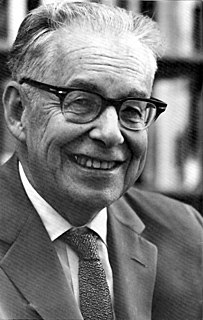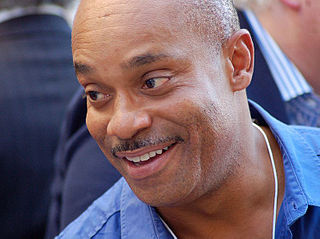A Quote by Konrad Lorenz
Man has been driven out of the paradise in which he could trust his instincts.
Related Quotes
What has here happened is that the instinct of cruelty, which has turned inwards, has become self-torture, and all man's animal instincts have been reinterpreted as guilt towards God. Every Nay man utters to his nature, to his real being, he flings out as a Yea, an affirmation of reality applied to God's sanctity
I credit that eight years of grammar school with nourishing me in a direction where I could trust myself and trust my instincts. They gave me the tools to reject my faith. They taught me to question and think for myself and to believe in my instincts to such an extent that I just said, "This is a wonderful fairy tale they have going here, but it's not for me."
If a man is offered a fact which goes against his instincts, he will scrutinize it closely, and unless the evidence is overwhelming, he will refuse to believe it. If, on the other hand, he is offered something which affords a reason for acting in accordance to his instincts, he will accept it even on the slightest evidence. The origin of myths is explained in this way.
There are two cardinal human sins out of which all others derive, deviate, and dissipate: impatience and lassitude (or perhaps nonchalance). On account of impatience they are driven out of paradise; on account of lassitude or nonchalance they do not return. Perhaps, however, only one main sense of sin is given: impatience. On account of impatience they are driven out, on account of impatience they do not turn back.
The earth is not a lair, neither is it a prison. The earth is a Paradise, the only one we'll ever know. We will realize it the moment we open our eyes. We don't have to make it a Paradise-it is one. We have only to make ourselves fit to inhabit it. The man with the gun, the man with murder in his heart, cannot possibly recognize Paradise even when he is shown it.
The man of wealth [should] consider all surplus revenues which come to him simply as trust funds, which he is called upon to administer to produce the most beneficial results for the community - the man of wealth thus becoming the mere trustee and agent for his poorer brethren, bringing to their service his superior wisdom, experience and ability to administer, doing for them better than that they would or could do for themselves.





































